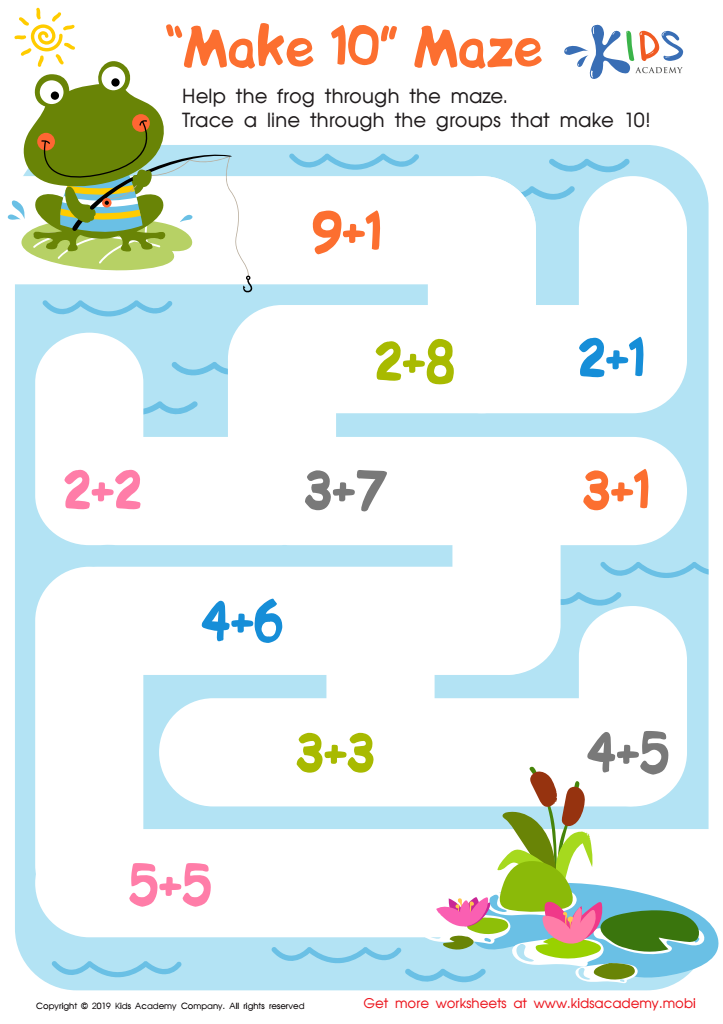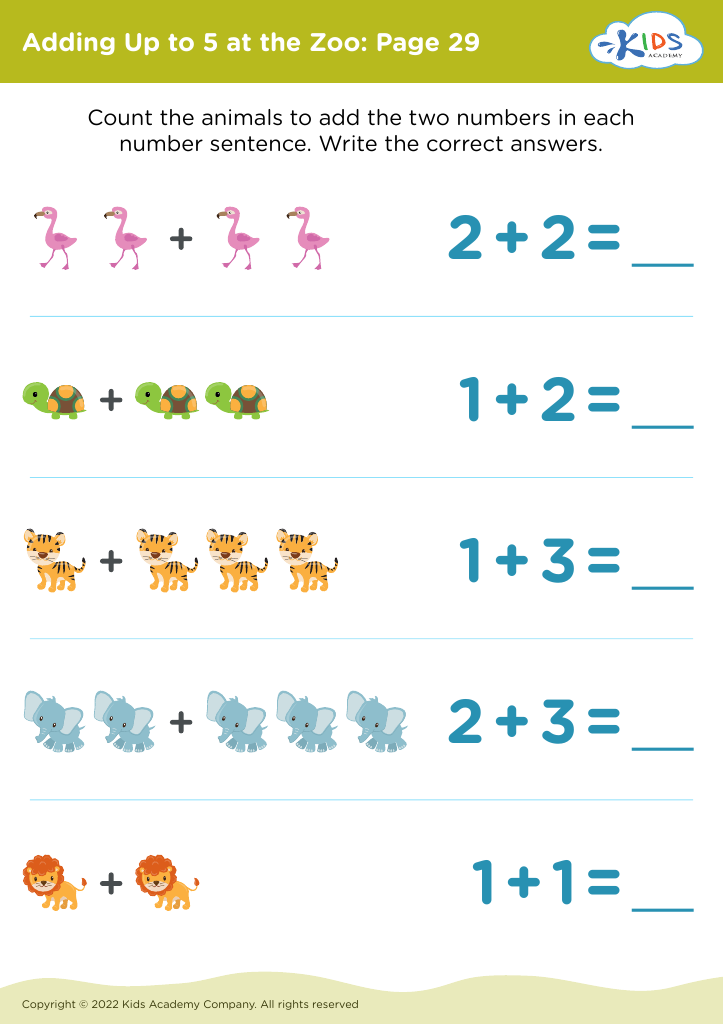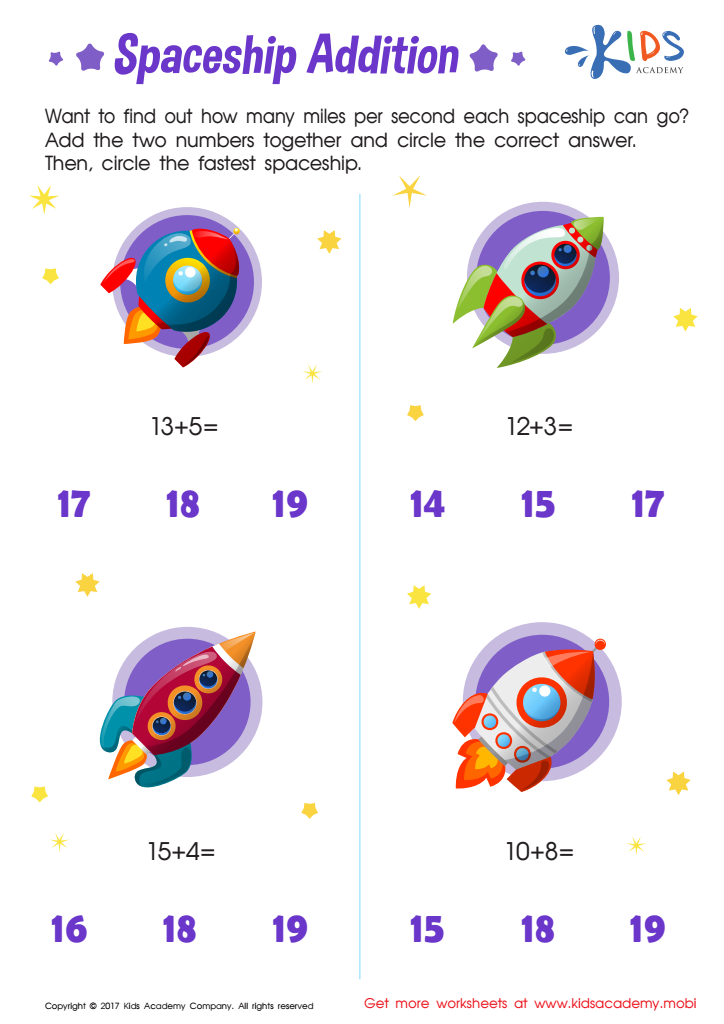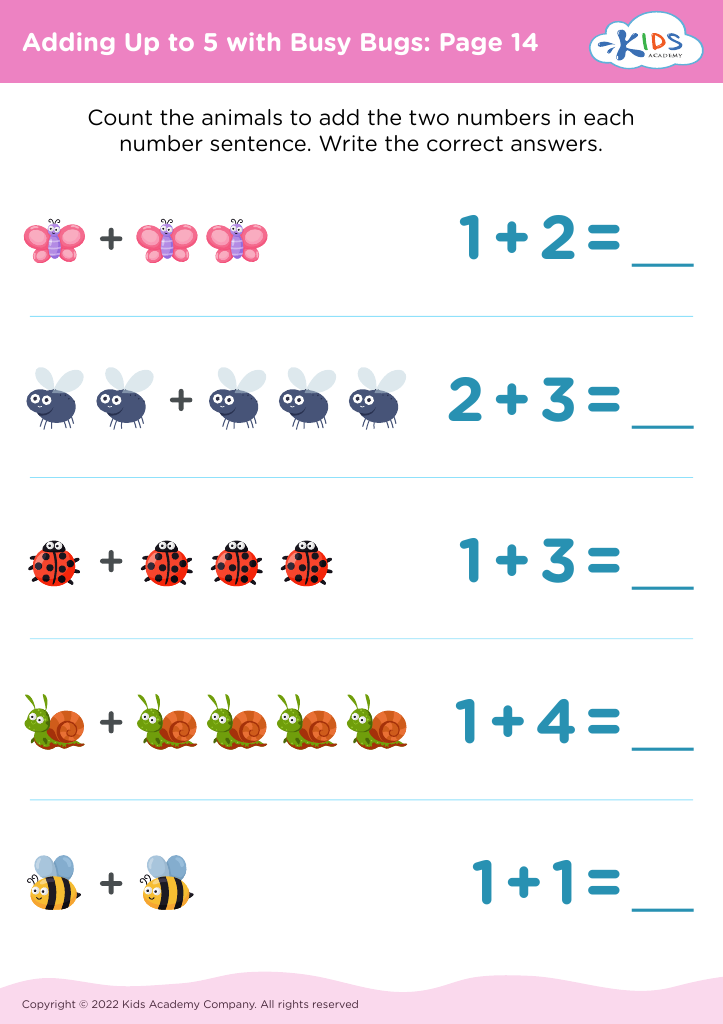Basic arithmetic understanding Worksheets for Ages 4-5
4 filtered results
-
From - To
Unlock the potential of young minds with our "Basic Arithmetic Understanding Worksheets for Ages 4-5." These meticulously designed worksheets foster foundational math skills, including number recognition, counting, and simple addition and subtraction. Tailored for early learners, our engaging activities feature vibrant illustrations and interactive exercises that make learning fun and effective. Ideal for preschool and kindergarten students, these resources promote confidence and interest in math from an early age. Equip your child with the essential building blocks for future academic success. Start your tiny tot’s math journey today with Kids Academy’s expertly crafted worksheets!


Make 10 Maze Worksheet
Basic arithmetic understanding for children ages 4-5 is crucial because it lays the groundwork for future mathematical learning and cognitive development. At this early stage, developing a strong foundation in arithmetic helps children better grasp more complex mathematical concepts as they grow. When parents and teachers focus on arithmetic, such as recognizing numbers, counting, simple addition, and subtraction, they nurture a child's critical thinking and problem-solving skills, which are applicable in everyday life and various academic areas.
In this formative period, children’s brains are highly receptive to new information. Engaging them in arithmetic through playful and interactive methods helps to foster a positive attitude towards mathematics. This early positive exposure is essential, as children who develop confidence in their mathematical abilities are more likely to maintain an interest in the subject throughout their education.
Additionally, basic arithmetic teaches children essential life skills such as making comparisons (big/small) and understanding concepts of space and quantity. These skills are foundational not just in mathematics, but in everyday decision-making and logical reasoning.
By investing time and effort in cultivating arithmetic skills at ages 4-5, parents and teachers ensure children have the tools needed for academic success and practical life skills.



 Assign to My Students
Assign to My Students




















